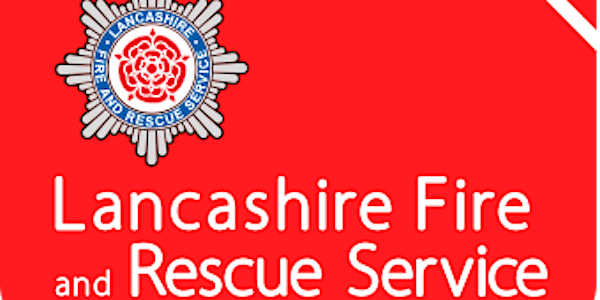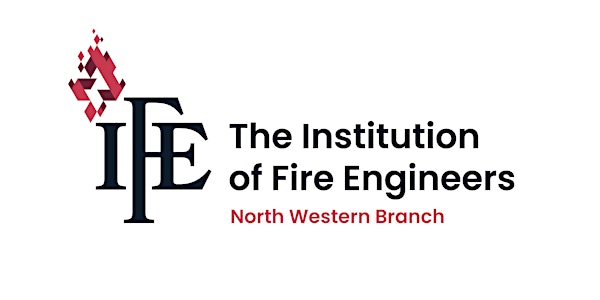

Structural Firefighting and Tactical Ventilation (Day 2)
Continuing on from Day 1 - CFBT & Tactical Ventilation training concepts (Theory and practical seminar)
Date and time
Location
Lancashire Fire and Rescue Service Training Centre
West Way Chorley PR7 6DH United KingdomAgenda
9:00 AM - 12:30 PM
CFBT & Tactical Ventilation training concepts Theory and practical seminar
12:30 PM - 1:00 PM
Lunch
1:00 PM - 2:30 PM
Practical and Session Brief
2:30 PM - 4:00 PM
Practical Session
4:00 PM - 4:30 PM
Decontamination and Shower
About this event
Day 2 -Teaching concepts seminar and practical Attack session.
Note - There may not be capacity for all persons to undertake the practical BA wearing session on Day 2.
All are welcome to and attend the morning seminar centred around teaching concepts and observe practical brief, session & debrief.
Lancashire Fire and Rescue Service Washington Hall training Centre will be hosting a free two-day Institute of Fire Engineers (IFE) event on 29th-30th April 2024,
Structural Firefighting and Tactical Ventilation with guest speakers John McDonough from Fire & Rescue New South Wales (FRNSW), Australia and Karel Lambert from Brussels Fire Department .
John McDonough:
John has been a professional firefighter for 36 years and is an Inspector with the Fire and Rescue NSW (FRNSW). FRNSW is one of the world’s largest urban fire and rescue services and is the busiest in Australia. It covers an area of over 800,000 km2 with nearly 7,000 firefighters and 335 fire stations. He is currently an operational Duty Commander in charge of 15 fire stations north of Sydney. From 2003 to 2017, he was Team Leader of the Fire Operational Training Team. This team trains all firefighters and officers in structural fire behaviour and fire fighting techniques and tactics.
After returning from a study trip to Sweden and the UK in 2002, he was tasked with the introduction of modern fire behaviour based firefighting techniques and tactics specifically developed to make the role of firefighters safer and more effective. These skills were taught within a training program known globally as Compartment Fire Behaviour Training (CFBT). Over the last 20 years, this has developed into what is now known as Structural Firefighting Training which incorporates all Live Fire training for both skills acquisition and maintenance. It has become the standardised doctrine for how FRNSW firefighters act and behave at the task and tactical level when dealing with structural fires. It is taught at all levels from recruit to Station Officer.
He continues to travel extensively in order to study and instruct in modern firefighting trends and benchmark against these for world’s best practice in developing training programs. He has delivered fire training courses in Germany, Croatia, Belgium, Poland, France, Canada, Hong Kong, Brazil, UK and the US. In Europe alone, he has helped train over five hundred firefighting instructors. He is a founding member of the International Fire Instructor’s Workshop (IFIW) which holds a yearly conference that brings together both the operational practitioners and scientific community to discuss existing and emerging issues in the fire service.
He was a lead instructor on the Canadian ‘F.I.R.E – Firefighting, Instruction, Research and Engineering’ project, designed to reduce risks and impacts due to fire (2013 – 2018). In 2014 he was one of four international firefighters selected as panel members for the ‘Study of the Impact of Fire Attack Utilizing Interior and Exterior Streams on Firefighter Safety and Occupant Survival’. This research was conducted by Underwriters Laboratories (Chicago 2014 - 2017).
He is a co-author of ‘3D Firefighting – Training, Tactics and Techniques’, which was published in the USA by FPP/IFSTA in 2005 (Grimwood, Hartin, McDonough and Raffel).
In 2009 he was awarded Australia’s highest honour for Fire Officers, the Australian Fire Service Medal for his work in structural firefighting training. He received a Polish Fire Service Bronze Medal of Merit in 2014 for services rendered to the Polish Fire Service and a Silver Badge of Honour from the Polish Association of Fire Engineers and Technicians in 2023. He has a Certificate 4 in Training and Assessment and an Advanced Diploma in Management.
Karel Lambert:
Karel has been a firefighter for 22 years. He is a major with the Brussels Fire Department where he is in charge of 3rd platoon (250 firefighters) during his 24h shifts and also works as chief of the training department. He also works as a volunteer sergeant in the department that protects his home town.
Karel’s main interest is firefighting. He strongly believes that more science should be involved. He tries to improve the quality of firefighter training programs. Karel participated in training programs in the 15 countries all over the world to gather knowledge that could be spread in the firefighting community. He is a member of International Fire Instructor Workshop (IFIW) which meets yearly to discuss and examine current fire related topics.
He was a lead instructor on the Canadian ‘From Knowledge to Practice’ project. In this project, the Ottawa Fire Services and its partners (Halifax, Montreal and Calgary) developed a comprehensive, evidence-based fire dynamics training (FDT) curriculum for all Canadian firefighters.
In the past years, Karel delivered CFBT instructor courses in Belgium, The Netherlands, France, Canada, Nepal, Greece and Hong Kong. He lectured in 17 countries worldwide.
Karel graduated in 2000 as a civil engineer. He obtained a master in occupational safety & health in 2006. In 2014, he completed the International Master of Science in Fire Safety engineering for which he studied in Belgium, Sweden and the UK. Currently, he is enrolled as a psychology student at Ghent University.
Karel is also a guest professor at Ghent University and carried out scientific research into the use of PPV fans, search & rescue and tunnel firefighting. He published three peer-reviewed research papers. In 2013, he was one of three international firefighters selected as panel members for the Study of the Effectiveness of Fire Service Positive Pressure Ventilation During Fire Attack in Single Family Homes Incorporating Modern Construction Practices. This research was conducted by Underwriters laboratories (Chicago 2013-2016)
Karel is a co-author of four books about fire and firefighting. Karel wrote 99 articles and papers about firefighting that have been published in 8 fire service magazines in Belgium, the US, The Netherlands, France, Germany, the UK and Poland. Most of his work can be found on www.cfbt-be.com/en where articles in 12 languages are available.
50 of his articles have been translated into Korean and published as a book: The articles of CFBT-BE. It was selected as a '2023 Outstanding Academic Book of the Ministry of Education' by the Korean Academy of Sciences
The CPD event will cover the following learning objectives:
- Identify the Non-negotiables of structural firefighting
- Outline leadership principles for training and operations
- Understand the importance of Knowing the Spead – variables which effect fireground operations.
- Suppression and extinguishing methods.
- Ventilation tactics for training and operations
- Effective fire control during a Compartment Fire Behaviour Training session.
Places are limited so please be quick.
Day 1 29/04/24 will have covered – Structural Firefighting, Tactical Ventilation and Leadership presentation.
Day 2 (Today)
Teaching concepts seminar and practical Attack session.
Note - There may not be capacity for all persons to undertake the practical BA wearing session on Day 2.
All are welcome to and attend the morning seminar centred around teaching concepts and observe practical brief, session & debrief.
Venue Address & joining requirements
Lancashire Fire and Rescue Service Washington Hall training Centre, West Way, Euxton Chorley, PR7 6DH
PLEASE NOTE: Day 2 will need to be booked separately and spaces are limited
Any non LFRS person(s) wishing to undertake the practical session on Day 2 (30/04/2024) must be trained in the use of SCBA and bring with them their own fire kit, BA set, undergarments and shower toiletries.
Tea and coffee refreshments will be provided, but lunch is unfortunatly not included so plesae bring somethign with you or there are local facilites available close by.
I hope to see you there! 😊